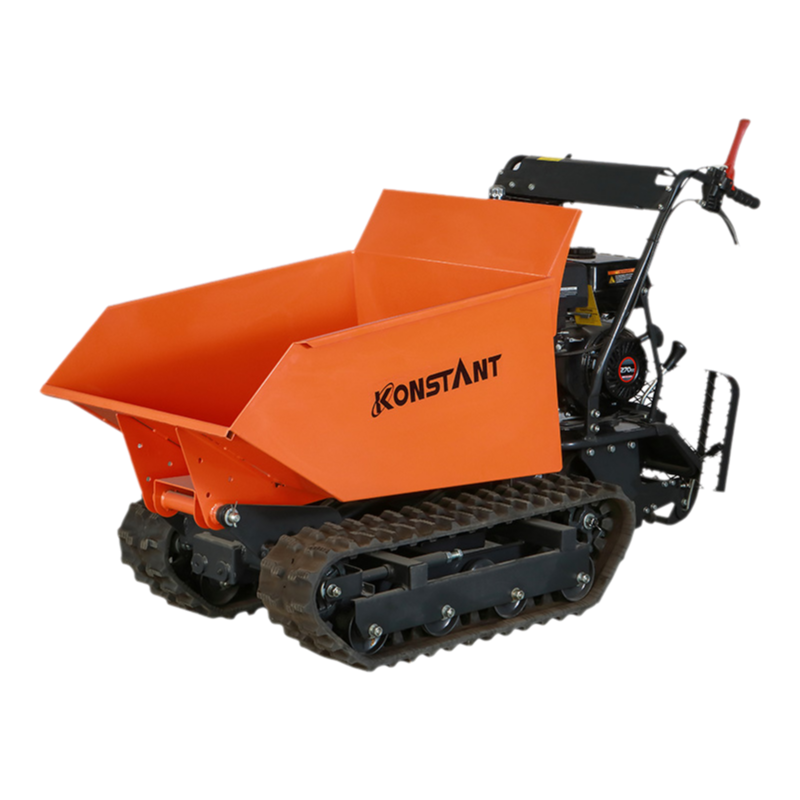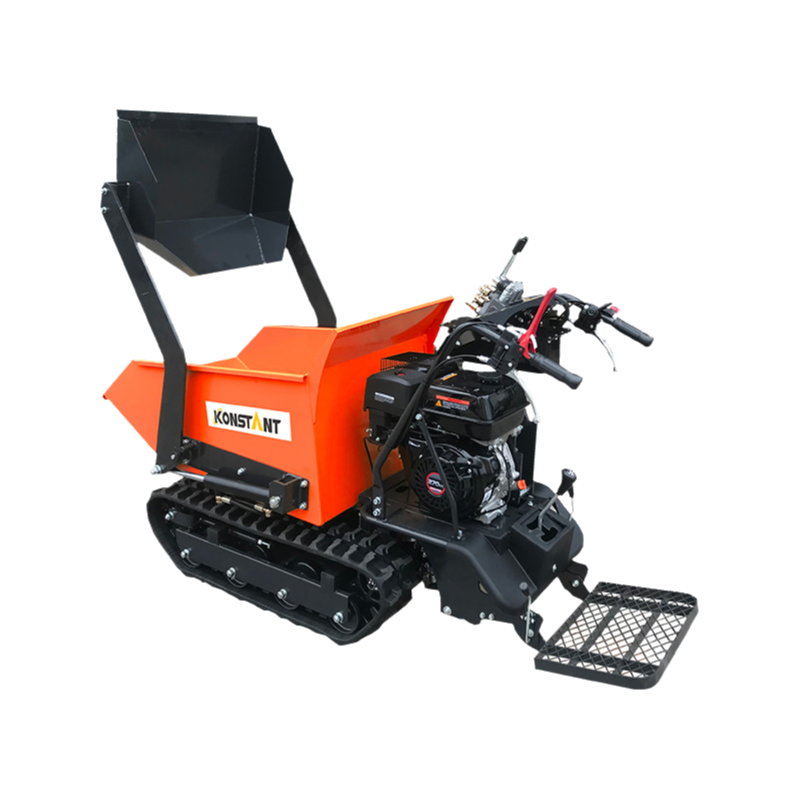Provide you with the latest enterprise and industry news
Battery Powered Mini Dumpers Revolutionize Compact Material Handling
Update:19-05-2025
Posted by Admin
The construction and landscaping sectors are embracing a new era of efficiency with battery powered mini dumpers redefining small-scale material transport. These agile machines combine zero-emission operation with enhanced maneuverability, addressing the growing demand for sustainable and versatile solutions in confined workspaces. As industries prioritize eco-friendly practices, electric compact haulers are emerging as vital tools for projects requiring precision, reduced environmental impact, and operational flexibility.

Meeting Demand for Agile and Sustainable Equipment
Modern infrastructure projects increasingly require equipment capable of navigating tight spaces while minimizing ecological footprints. Battery powered mini dumpers excel in these scenarios, offering quiet operation and emission-free performance ideal for urban developments, indoor renovations, and environmentally sensitive areas. Their compact design ensures accessibility to challenging terrains without compromising load capacity, making them indispensable for contractors balancing productivity with sustainability goals.
Advances in Power and Performance
Recent innovations in battery technology have significantly extended operational runtimes and reduced charging intervals. Lithium-ion systems now provide consistent power delivery across varying workloads, while regenerative braking mechanisms recover energy during descent or deceleration. These improvements eliminate traditional downtime associated with fuel refills, enabling continuous operation in time-sensitive projects. Enhanced torque control further ensures stability when handling uneven loads, maintaining safety without sacrificing efficiency.
Eco-Conscious Design Aligns with Global Trends
The shift toward electric construction machinery reflects broader industry commitments to reducing carbon emissions. Battery powered mini dumpers produce no exhaust pollutants, improving air quality on job sites and aligning with stringent urban emission regulations. Manufacturers are also adopting recyclable materials for chassis components and biodegradable hydraulic fluids, reinforcing the circular economy principles gaining traction across the sector.
Safety and Ergonomics Take Priority
Operator-centric designs have transformed user experience, with intuitive controls and adjustable seating enhancing comfort during prolonged use. Advanced stability systems automatically adjust weight distribution on slopes, while obstacle-detection sensors prevent collisions in congested areas. These safety features comply with international machinery standards, ensuring reliability in high-risk environments such as demolition sites or agricultural terrains.
Versatility Across Industries
While primarily utilized in construction, battery powered mini dumpers are gaining traction in landscaping, agriculture, and event management. Their ability to transport gravel, soil, or debris with minimal ground disturbance makes them ideal for vineyard maintenance, park renovations, and temporary venue setups. Customizable attachments, such as snowplows or forklift extensions, further broaden their utility across seasonal and specialized applications.
Smart Technology Integration
Emerging models now incorporate telematics systems that monitor battery health, track location, and analyze usage patterns. Fleet managers can optimize deployment schedules and predict maintenance needs remotely, reducing operational costs. This connectivity aligns with the industry’s push toward digitized, data-driven project management.
Global Adoption and Local Adaptations
Manufacturers are tailoring designs to meet regional requirements, such as enhanced waterproofing for tropical climates or reinforced frames for rugged mining operations. This localization strategy supports emerging markets in adopting sustainable machinery while maintaining durability under diverse working conditions.
Future Innovations on the Horizon
Industry experts anticipate advancements in modular battery systems, allowing rapid swaps to eliminate charging delays entirely. Research into lightweight composite materials could further improve energy efficiency, while autonomous navigation features may soon enable unmanned operation in hazardous zones. These developments promise to elevate productivity while reinforcing environmental stewardship.
In summary, battery powered mini dumpers represent a pivotal convergence of sustainability, innovation, and practicality. As industries worldwide prioritize greener practices and operational agility, these machines will continue to play a central role in reshaping material handling standards. Their ongoing evolution underscores a commitment to balancing ecological responsibility with the relentless demand for efficient, adaptable equipment in modern project landscapes.

 English
English русский
русский Français
Français Español
Español Deutsch
Deutsch















